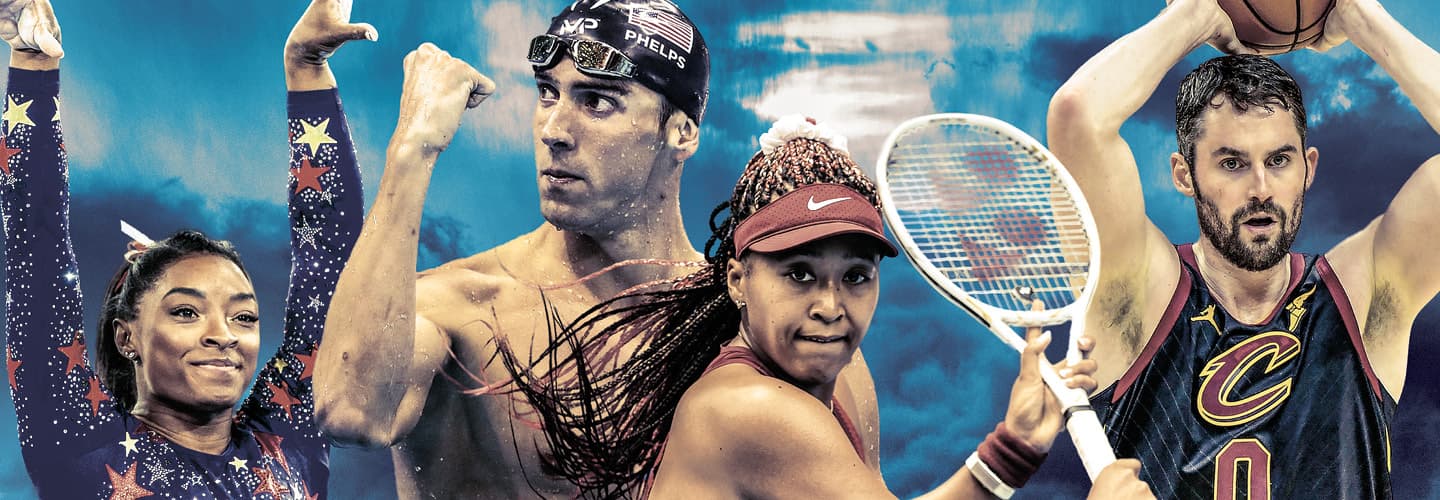Ezra Shaw/Getty Images
Olympic gymnast Simone Biles withdrew from most of her events at the Tokyo Games to focus on her mental health.
Soaring over a vault in midair, Simone Biles realized she’d lost her way.
The 24-year-old American—who many regard as the greatest gymnast of all time—came into the Tokyo Olympics expected to add another shelf of gold medals to her trophy case and to fulfill the obligations of a global celebrity. But the weight of her past success loomed over her. Fans assumed Biles would achieve perfection, even during a pandemic and without spectators to uplift her.
She felt far from perfect, however. Soon after the Olympics started in July, Biles said she began “fighting all of those demons” and wondering why she was even there. During her vault, she lost sense of where her body was in the air and nearly fell during the landing. She walked off the mat and later withdrew from all but one of her events, sending shock waves through the competition.
It would have been unimaginable only a few years ago for an Olympic athlete to admit significant doubts during the Games, much less to withdraw. But Biles and a handful of other famous athletes have recently opened up about their mental struggles and the stresses of competing and living in front of the cameras.
“At the end of the day, we’re human too,” Biles said in Tokyo, “so we have to protect our mind and our body rather than just go out there and do what the world wants us to do.”
Soaring over a vault in midair, Simone Biles realized she’d lost her way.
Many see the 24-year-old American as the greatest gymnast of all time. She came into the Tokyo Olympics expected to add another shelf of gold medals for her trophy case. She also had to live up to the status of a global celebrity. But the weight of her past success clouded her mind. Fans assumed Biles would achieve perfection, even during a pandemic and without people in the audience to uplift her.
But she felt far from perfect. Soon after the Olympics started in July, Biles said she began “fighting all of those demons” and wondering why she was even there. During her vault, she lost her sense of where her body was in the air and nearly fell during the landing. She walked off the mat and later withdrew from all but one of her events. The move sent shock waves through the competition.
A few years ago, it would’ve been uncommon for an Olympic athlete to admit their doubts during the Games. And no one would have imagined an athlete would go as far as withdrawing. But Biles and a handful of other famous athletes have recently opened up about their mental struggles and the stresses of competing and living in front of the cameras.
“At the end of the day, we’re human too,” Biles said in Tokyo, “so we have to protect our mind and our body rather than just go out there and do what the world wants us to do.”

